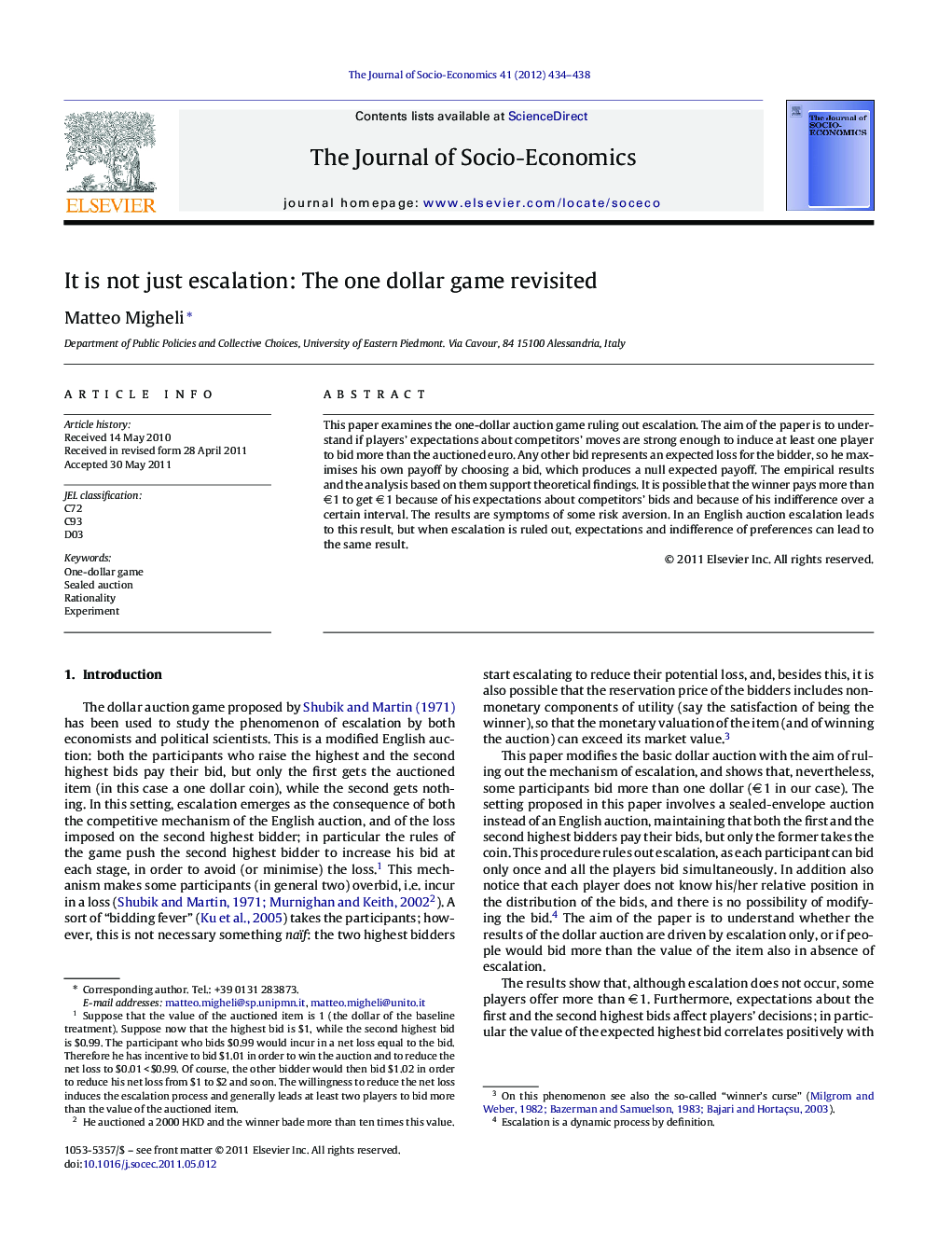| Article ID | Journal | Published Year | Pages | File Type |
|---|---|---|---|---|
| 970725 | The Journal of Socio-Economics | 2012 | 5 Pages |
This paper examines the one-dollar auction game ruling out escalation. The aim of the paper is to understand if players’ expectations about competitors’ moves are strong enough to induce at least one player to bid more than the auctioned euro. Any other bid represents an expected loss for the bidder, so he maximises his own payoff by choosing a bid, which produces a null expected payoff. The empirical results and the analysis based on them support theoretical findings. It is possible that the winner pays more than €1 to get €1 because of his expectations about competitors’ bids and because of his indifference over a certain interval. The results are symptoms of some risk aversion. In an English auction escalation leads to this result, but when escalation is ruled out, expectations and indifference of preferences can lead to the same result.
► The paper modifies the dollar auction. ► A characterisation for the Nash equilibrium is derived. ► The model shows that bidding positive amounts are rational. ► The experiment shows that also overbidding may be rational.
